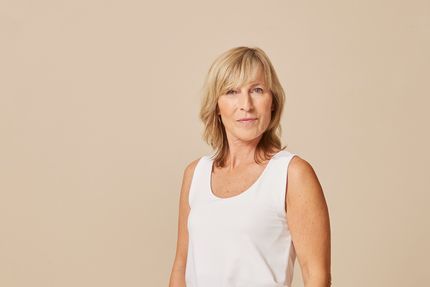

Wies: “Those pounds gained during menopause are tough to get rid of, but it can be done”
“I'm exercising like crazy and eating very little, but I continue to gain weight. I can't get rid of my menopause belly, no matter how hard I try.” I've come across many women with similar struggles. That stubborn layer of fat around the midsection just won’t go away. Shedding a few pounds would not only make you look better and feel healthier, a bloated stomach is also very uncomfortable.
Did you know that women gain 10 to 20 pounds during the menopause transition?
Less oestrogen, more pounds
There are several reasons why the pounds suddenly keep piling on, but the main culprit is changing hormone levels, specifically the decline in oestrogen.
Oestrogen plays a role in metabolism: low oestrogen slows down metabolism.
Falling oestrogen levels around menopause is associated with the loss of muscle mass. Muscle tissue burns fat for fuel (energy). So, the less muscle tissue you have, the less fuel you need. This means that – if you want to maintain a healthy weight – you can get by with less food.
Losing weight is not as easy as it used to be
OK, you need to eat less. However, there are also other factors that contribute to menopausal weight gain. I'm lucky that I haven't gained weight. But I know of plenty women who watch their diet and still they do not get the results they want in their midsection.
What works for one person may not work for another. What I have come to realise is that people often think their diet is healthy or suitable for weight loss, but it isn't.
I don't mean to be patronising, but I recommend anyone struggling with weight loss to see a dietitian. It's so helpful to have an educated outsider's perspective on what you eat and what changes to make.
Your diet may be lacking in fibre or have more carbohydrates than you think. Menopause has changed the rules of how our bodies work, which means you may need to re-examine your weight loss strategy.
Check your protein intake
Here’s another tip. Track your eating habits to see how much protein you consume. There are various tracker apps, such as Protein Pal, to assist people in keeping track of their daily protein intake. Try it for a few days.
By using an app, I discovered that my protein intake was too low. We need around 0.5 gram per pound of body weight to maintain muscle mass. So if you weigh 70 kilos, you need 70 grams of protein a day. This is super important because we lose muscle mass during midlife and menopause.
Sleep deprivation and stress can also contribute to weight gain (or make losing weight more difficult). Instead of focusing on diet, it's important to look at the bigger picture when it comes to weight loss. A menopause specialist can help you with this.
Those pounds gained during menopause are tough to get rid of, I know. But it can be done, so don't give up!
Who is Wies?
Wies Verbeek (58) is a healthy ageing journalist, founder of website BLOW.nl, and author of ’n Beetje Leuk Ouder Worden, 101 verrassende en bewezen tips (Ageing Happily, 101 surprising tips that work). And... she's going through menopause like the rest of us.
Possibly of interest to you










